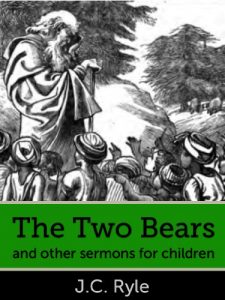"The name of Bishop Latimer is well known to all readers of English Church history. There are, probably, few who have not heard or read that three hundred years ago there was such a Queen of England as “Bloody Mary,” — and that men were burnt alive in her reign because they would not give up Protestantism — and that one of these men was Bishop Latimer.
But English Churchmen ought to know these things better in the present day. They ought to become thoroughly familiar with the lives, the acts, and the opinions of the leading English Reformers. Their names ought to be something better than hackneyed ornaments to point a platform speech, and rhetorical traps to elicit an Exeter Hall cheer. Their principles ought no longer to be vague, hazy shadows “looming in the distance,” but something clear, distinct, and well-defined before our mind’s eyes. My desire is, that men may understand that the best interests of this country are bound up with Protestantism. My wish is, that men may write on their hearts that the well-being of England depends not on commerce, or clever politicians, or steam, or armies, or navies, or gold, or iron, or coal, or corn, but on the maintenance of the principles of the English Reformation."
But English Churchmen ought to know these things better in the present day. They ought to become thoroughly familiar with the lives, the acts, and the opinions of the leading English Reformers. Their names ought to be something better than hackneyed ornaments to point a platform speech, and rhetorical traps to elicit an Exeter Hall cheer. Their principles ought no longer to be vague, hazy shadows “looming in the distance,” but something clear, distinct, and well-defined before our mind’s eyes. My desire is, that men may understand that the best interests of this country are bound up with Protestantism. My wish is, that men may write on their hearts that the well-being of England depends not on commerce, or clever politicians, or steam, or armies, or navies, or gold, or iron, or coal, or corn, but on the maintenance of the principles of the English Reformation."












